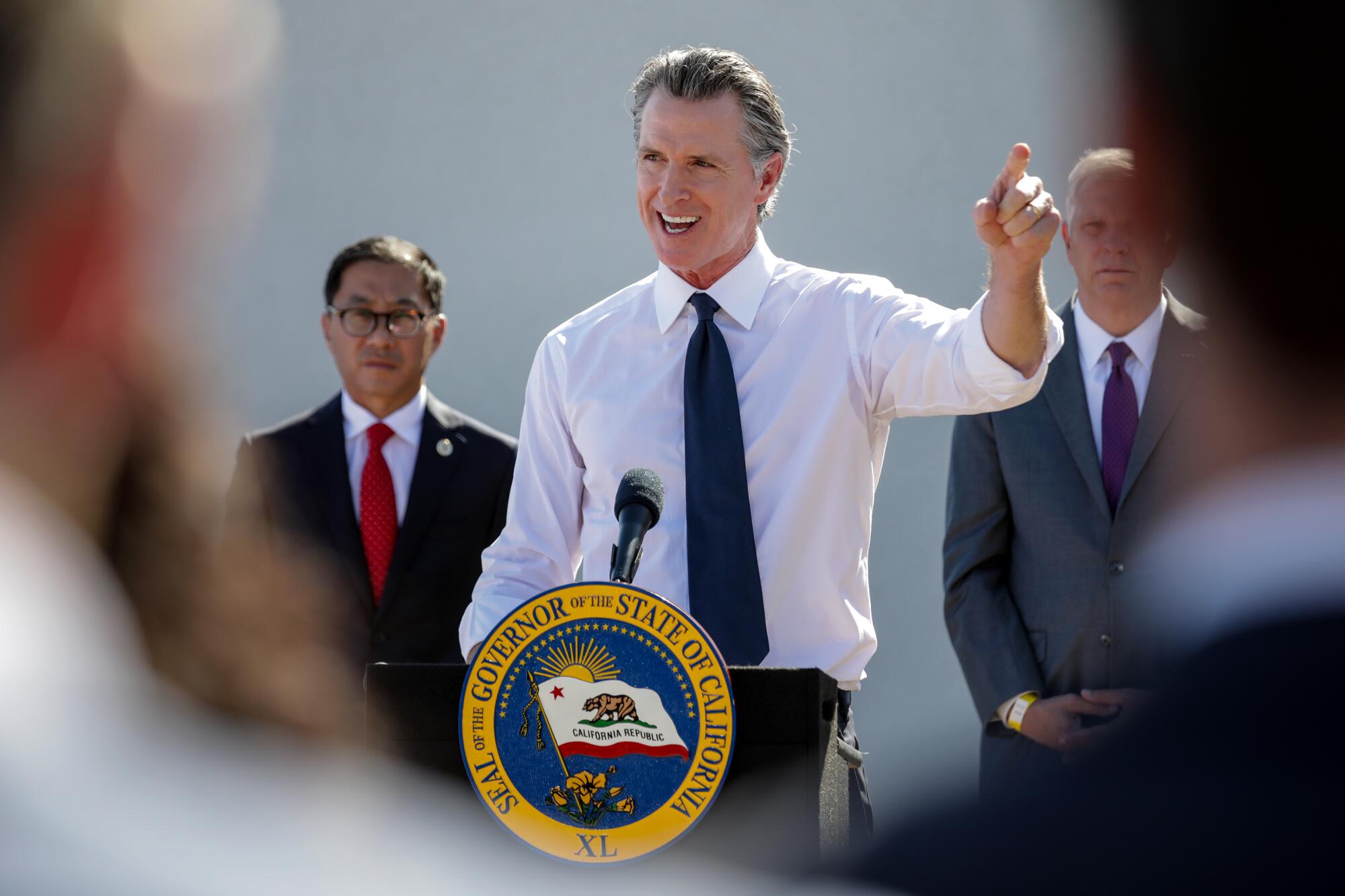
- Share via
Gavin Newsom’s legacy as California governor and maybe even his future viability in politics are tied tightly to the problems plaguing the state’s largest city.
Newsom has made homelessness his top policy priority for his final three years in the office and nowhere is the crisis as critical as it is in Los Angeles.
Discover the changemakers who are shaping every cultural corner of Los Angeles. L.A. Influential brings you the moguls, politicians, artists and others telling the story of a city constantly in flux.
With the city’s notorious Skid Row and other encampments serving as fodder for his GOP critics to highlight the failures of liberal governance and Democrats tiring of the lack of progress, Newsom is under pressure to slow the tide of Californians living on the streets.
He controls the $297.7-billion state budget and the funding allocated for programs across the state. But making any kind of noticeable impact on the homelessness crisis could grow more difficult in the years ahead, as state revenues continue to fall short of expectations and Newsom is forced to curb spending.
Los Angeles County makes up about 25% of the state population and any cuts will have an outsized influence on the region.

The governor chose Los Angeles General Medical Center as the site to sign his plan to transform the state’s mental health and substance abuse treatment system in October, two issues inextricably interwoven with homelessness.
The overhaul, which includes a bond that voters also approved on the statewide ballot in March, centers on expanding services for drug addiction and adding 10,000 treatment beds across the state, serving a rising number of residents each year.
His plan builds on a program known as Care Court that he passed last year to potentially force drug-addicted and mentally ill unhoused Californians into court-ordered treatment, which launched in Los Angeles County on Dec. 1.
The governor chose Los Angeles General Medical Center as the site to sign his plan to transform the state’s mental health and substance abuse treatment system.
Newsom, 56, said he feels just as responsible for addressing the problems in Los Angeles as he does in San Francisco, the city that birthed his political career.
“100%,” Newsom said. “I mean, look, San Francisco has a special place in my heart. But so does L.A.”
As governor, he’s made a point to spend more time in the city than his predecessor, Jerry Brown.
He said he’s also grown beyond the north and south rivalry that splits California. In fact, he sided with the south each time he had to make appointments to the U.S. Senate. Sens. Alex Padilla and Laphonza Butler both call Los Angeles home.
Except when it comes to baseball. Sort of.
“But I’m still not a Dodger fan as much as I am a Giants fan,” Newsom said.








